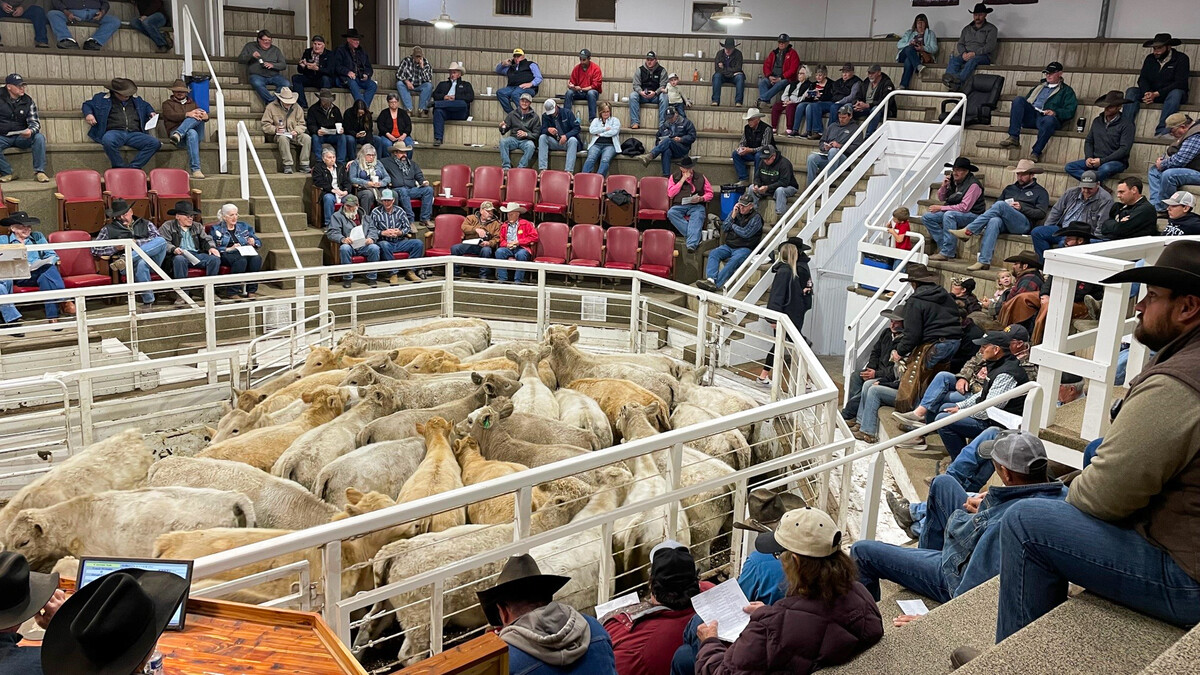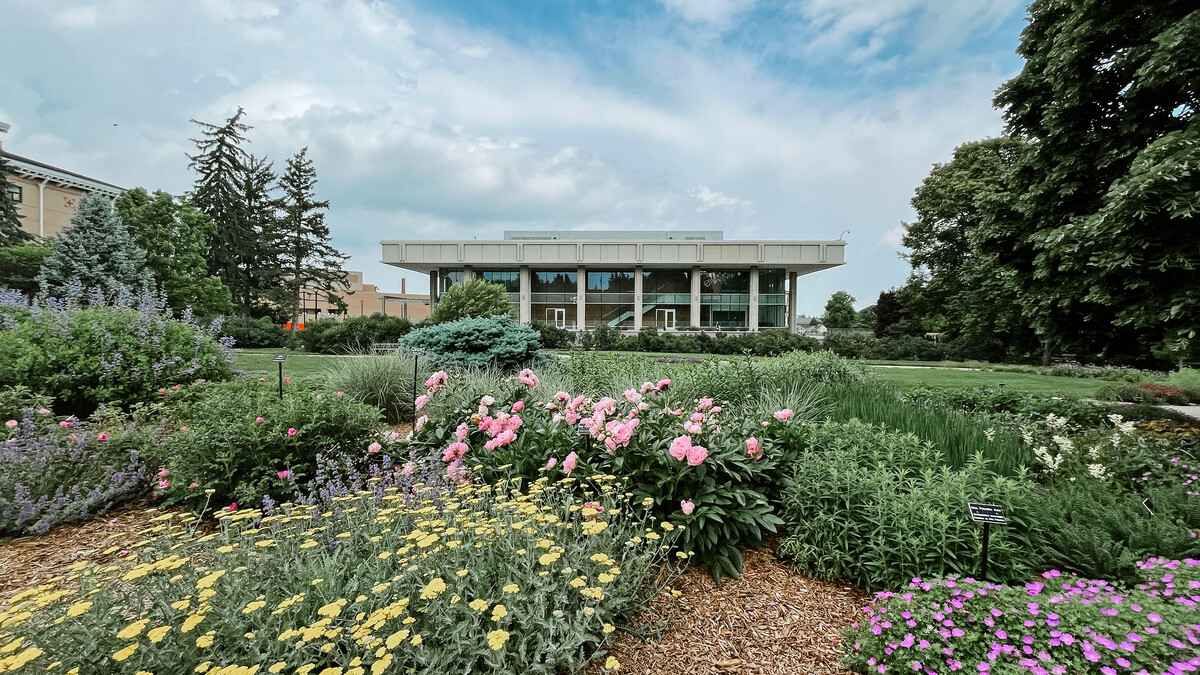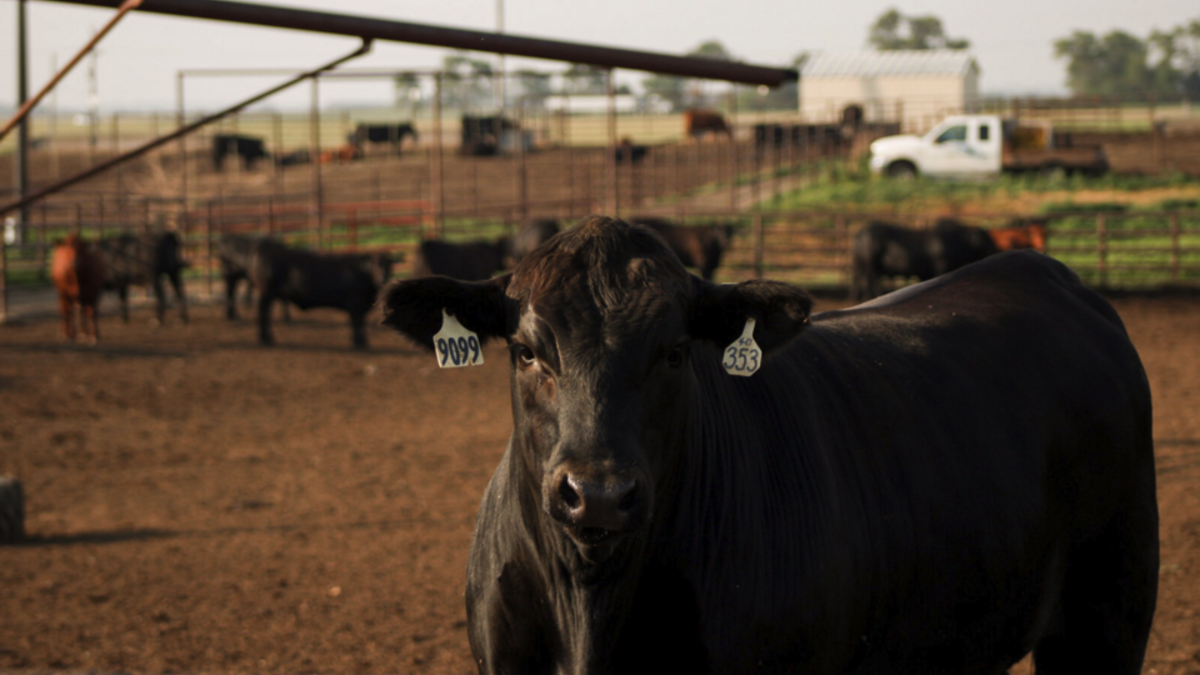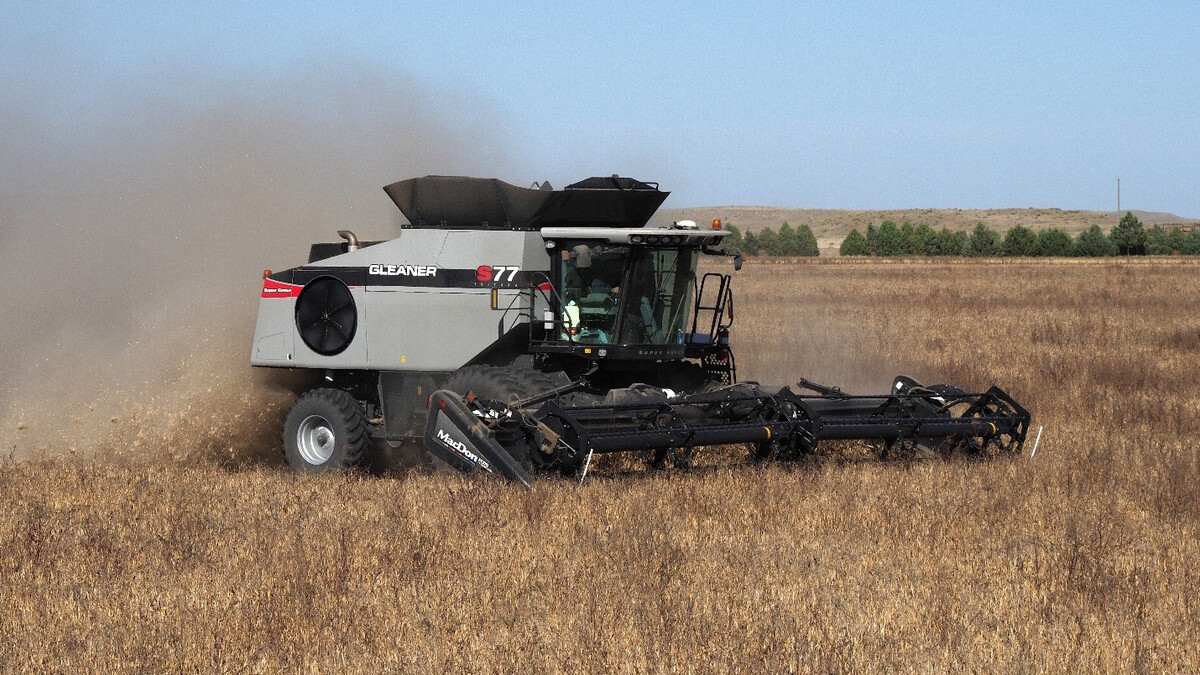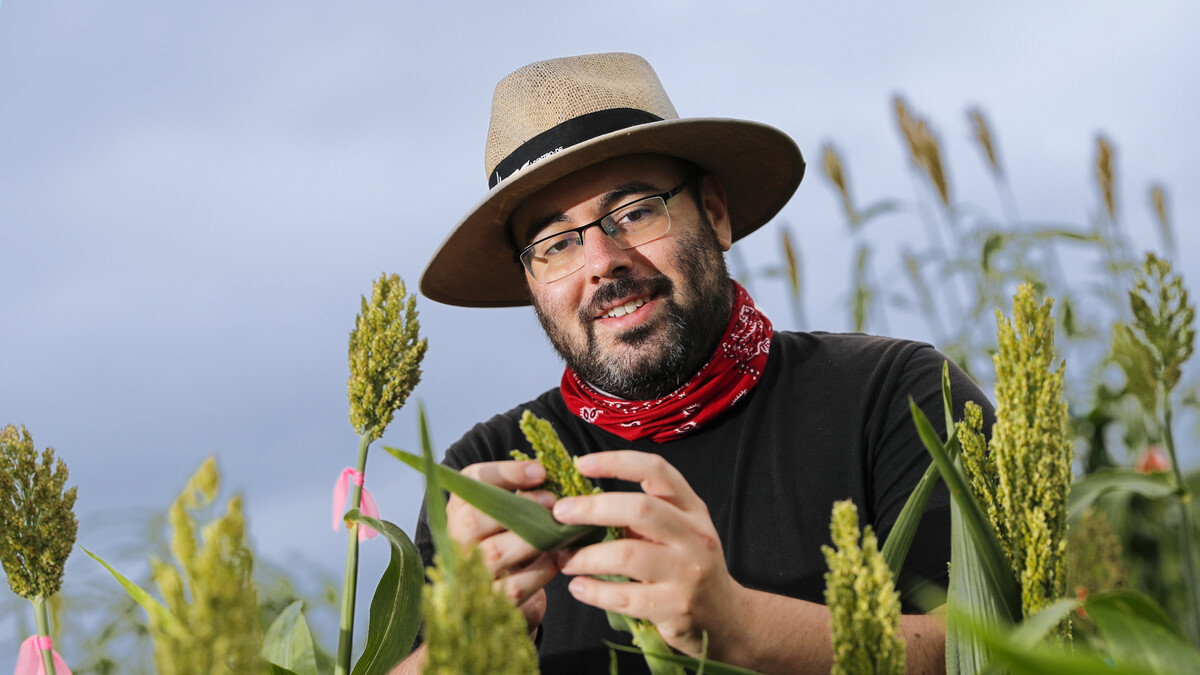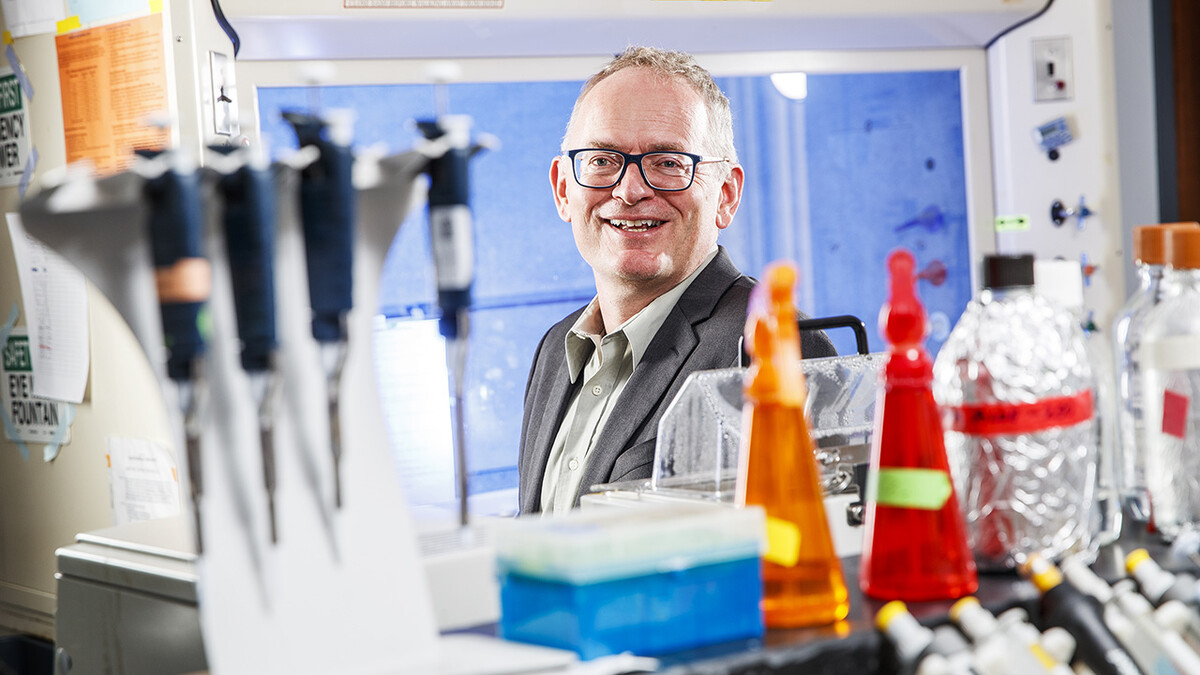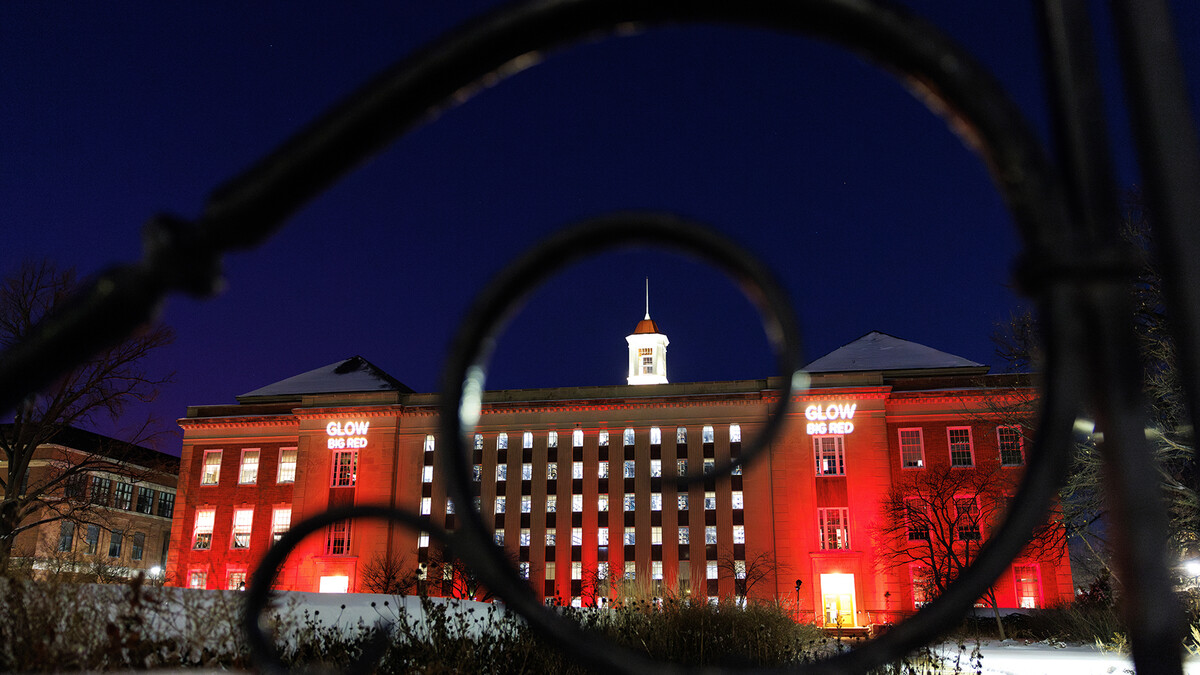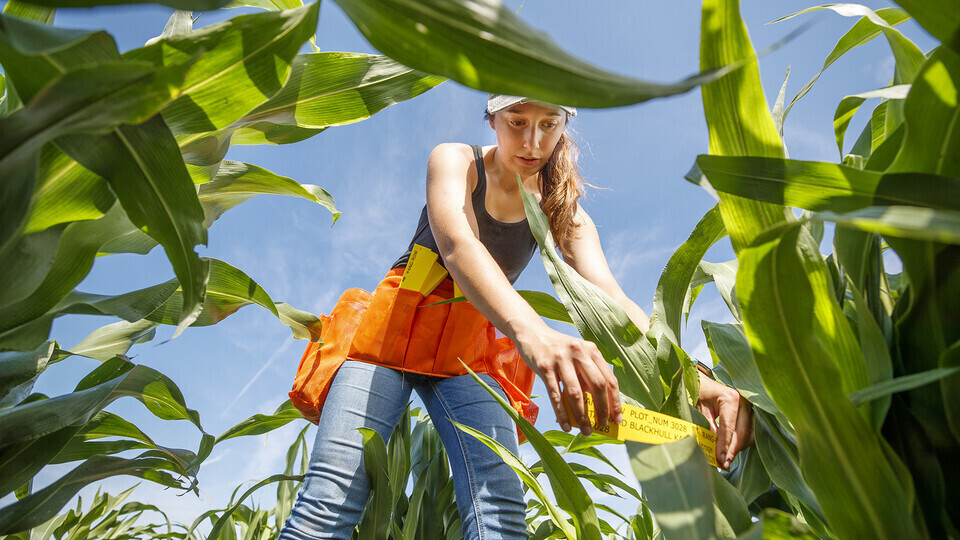
Lincoln, Neb. —When the University of Nebraska–Lincoln was founded nearly 152 years ago, agriculture and natural resources were one of its fundamental focuses.
A lot has changed since then — but Nebraska’s mission of supporting the ag industry still remains strong.
In celebration of National Farmer’s Day Oct. 12, take a look at how university innovations and programs are impacting agriculture across the state, the country and the world.
Testing tractor performance
Craig Chandler | University Communication In this pre-COVID photo, Cody Kneifl, senior in mechanical systems, sits in the cab of a Challenger tractor being tested by the Nebraska Tractor Test Laboratory.Tractors are an essential part of farm operations — but before being sold on the market, nearly every make and model in the country runs through Nebraska’s Tractor Test Laboratory.
The laboratory, located on East Campus, is the oldest and only officially-designated testing site for tractors in the United States. On a long, oval-shaped outdoor track, tractors are tested for speed, engine performance, noise levels and more according to a global standard set by the Organization for Economic Cooperation and Development.
In the 100 years since its founding in 1920, the site has tested and approved over 2,000 tractors.
Boosting crop resilience
Craig Chandler | University Communication Rebecca Roston, assistant professor of biochemistry, holds a pea plant outside the Beadle Hall greenhouses.Going on a road trip? As you look out your car window at the rolling fields across Nebraska, you might not realize that 50% of the state’s wheat varieties have origins at the university. The varieties are the work of Stephen Baenziger, professor of agronomy and horticulture, who has spent the past 34 years modifying them for better yields, insect and disease resistance, and stress tolerance.
Baenziger’s research is just one part of the university’s effort to increase crop resilience. James Schnable, Charles O. Gardner Professor of Agronomy, is working to develop more drought-resistant corn by measuring stalks’ internal water flow with a Fitbit-like device. Rebecca Roston, associate professor of biochemistry, is using a National Science Foundation Grant to study how more than 30 species of plants respond to cold temperatures so that scientists can one day engineer more freeze-tolerant crops.
Automating ag practices
Alyssa Amen | NUtech Ventures Husker researchers Ty Schmidt (back left), Mateusz Mittek (back right), Eric Psota (front left) and Lance C. Pérez have created livestock tracking technology being tested on pigs. Photo taken pre-COVID.In Nebraska’s College of Engineering and Department of Animal Science, researchers are finding ways for farmers to manage their crops and livestock without lifting a finger.
Santosh Pitla, associate professor of advanced machinery systems, is using ground robotics to develop an autonomous, driverless tractor known as the FlexRo, or Flexible Structured Robotic Vehicle. The device, which measures 10 feet wide and 10 feet high, is currently being used for capturing images of plants in the field, but can also complete two-row planting and targeted weeding.
Electrical and computer engineers Lance C. Pérez, Eric Psota and Mateusz Mittek, along with animal scientists Ty Schmidt and Benny Mote, have also developed machine learning video technology that can automatically identify signs of injury or illness in animals. Initially tested on pigs, the system tracks how much each animal eats and weighs and allows producers to take early action if a problem is spotted.
Combating the effects of climate change
Niobrara River west of Valentine, Nebraska.Climate change is not only causing rising sea levels, more frequent wildfires and extreme temperatures, but also extended periods of drought. Drought can have an especially large impact on the Midwest’s agricultural industry, which produces a significant amount of food for the rest of the world.
The university’s Drought Mitigation Center is a research hub that provides insights into drought conditions and provides resources to those impacted by droughts. Nebraska’s Daugherty Water for Food Global Institute has a similar mission, working to address the challenge of providing food to the growing global population with less stress on the world’s water resources.
Providing resources for rural communities
A Nebraska Extension community garden (photo taken pre-COVID).Thriving rural communities play an important role in Nebraska’s ag industry. University organization Nebraska Extension — with offices located in 83 of the state’s 93 counties — delivers research-based knowledge Nebraskans can immediately use in their lives, businesses, families and communities. Extension’s key focus areas are animal agriculture, crops for the future, children, youth and families, entrepreneurship, food, nutrition and health, water and environment.
The University of Nebraska–Lincoln’s Rural Futures Institute also sends student fellows to live and work on community development projects in small towns throughout the state each summer.
Training the next generation
Emily Frenzen | Stella Imaging Hannah Esch, Engler Entrepreneur and owner of Oak Barn Beef, works at her family ranch in Unadilla, Nebraska.Workforce development, especially in the ag industry, is a key focus of the University of Nebraska–Lincoln.
In 2019, the College of Agriculture and Natural Resources celebrated its largest-ever graduating class. In 2020, Nebraska was also ranked among the top 50 universities in the world for agriculture and forestry instruction for the fourth-straight year.
The Engler Agribusiness Program, established in 2010, continues to produce successful ag entrepreneurs like Hannah Esch, founder of Oak Barn Beef in Unadilla, Nebraska. Additionally, the university recently announced its involvement in the Northeast Nebraska Agriculture and Natural Resources Education Compact, which aims to boost the ag and natural resource industry in the northeast part of the state.
